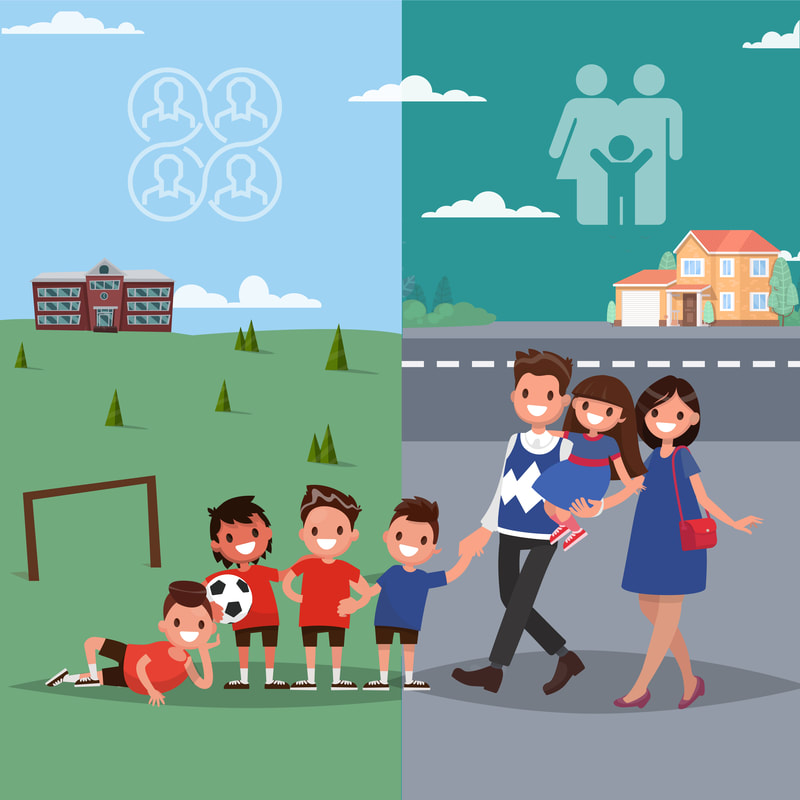|
Family and Peer Relationships
Social relationships provide the necessary environment for normal socio-emotional, cognitive and physical development of all children and adolescents. Aspects of healthy relationships include trust, sense of security, closeness, ability to resolve conflicts, being expressive and receptive in communications, boundary and respect.
The main building blocks of relationships are founded in families in young children, gradually extending to peers and teachers in school as well as other youth communities in adolescence. The flip-sides of relationships, such as lack of support, neglect, frequent conflicts (and even abuse in the extreme forms), might hamper healthy development and even amount to high stress situation that triggers lasting emotional turmoils in young people, perpetuating low self-esteem and trust issues in character development. The impact of creating supportive relationships or ameliorating relational conflicts can leverage onto lifelong beneficial effects on mental health and interpersonal functions. “When we heal relationships, we also heal the people!” 1,2 – WORK HEART team
|
|
Powered by / 主辦機構 :
|
Enquiry / Media Contact:
查詢 或 傳媒垂詢: Tel.: (+852) 2607 6050 / 6099 3064
Email: [email protected] |
Copyright © 2019 All Rights Reserved. The Chinese University of Hong Kong.
© 香港中文大學 2019 版權所有
© 香港中文大學 2019 版權所有


